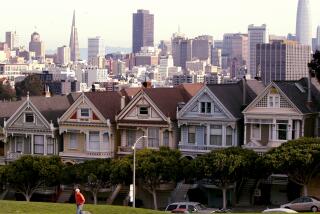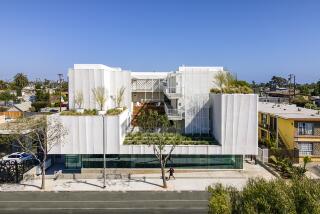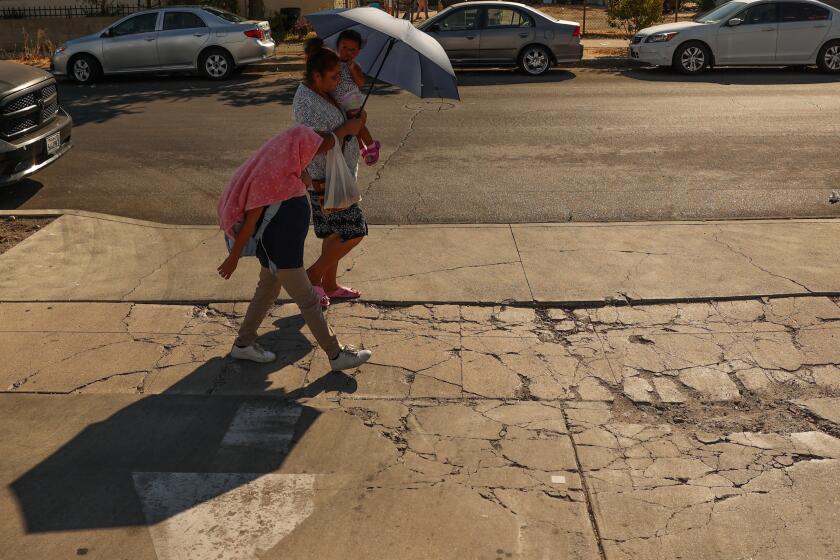Don’t sack the neighborhood
IT’S EASY TO LAUGH OFF the City of Lynwood’s delusional notion that it, among all of Southern California’s municipalities, will be able to lure the National Football League back to the area with a fancy new stadium. But what’s no joke at all is Lynwood City Hall’s belief that razing at least 100 private homes — and perhaps as many as 1,000 — is an acceptable way to gin up economic redevelopment.
Last fall, the city of 71,000 at the junction of the 710 and 105 freeways signed a one-year deal with developer John McDonald to negotiate terms of a possible sale of 250 acres for a mammoth development to be called the Lynwood Promenade. Preliminary plans by McDonald included two high-end hotels, a retail “power center,” 250,000 square feet of office space, a 70,000-seat football stadium and (in the words of the agreement) about “1,000 residential units to replace all residential units destroyed or eliminated as a consequence of the development of the project.”
What’s a redevelopment agency doing even contemplating the destruction of so many working-class homes? Lunging after sales-tax revenue, that’s what. Lynwoodians, City Councilwoman Leticia Vasquez told a crowd of concerned citizens last month, spend more than $200 million a year in the malls of nearby cities. “We help keep their streets paved and their trees trimmed,” she complained. And though the City Council swears it won’t use eminent domain, clearing such an enormous plot would be nearly impossible without it. Developer McDonald, meanwhile, is quick to stress that he would pave over “only” 100 homes.
But whether it’s 100 houses or 1,000, or even 10, seizing perfectly good private residences and handing them over to a private developer is not just bad policy, it may be illegal. Yes, the U.S. Supreme Court in 2005’s controversial Kelo vs. City of New London decision affirmed that local governments could constitutionally take private property for reasons of economic development, but the backlash triggered by that decision included a new California law, effective Jan. 1, tightening up the definition of “blight” and making it harder for redevelopment agencies to target non-blighted properties.
Lynwood Mayor Louis Byrd, a former USC football player, has said he hoped that the thought of having a professional football team would generate much-needed excitement in his city. It has, but not for the reasons he expected. Outraged residents have packed City Council meetings by the hundreds and organized protest marches.
On Jan. 2, the City Council deadlocked 2 to 2 on canceling their agreement with McDonald. (A councilwoman whose home would be taken under the plan abstained.) Further debate could continue as soon as tonight’s meeting. The council should go back to the drawing board and work on a scaled-down plan that doesn’t treat constituents like ATM machines. And leave the silly NFL posturing to Los Angeles.
More to Read
Sign up for Essential California
The most important California stories and recommendations in your inbox every morning.
You may occasionally receive promotional content from the Los Angeles Times.









